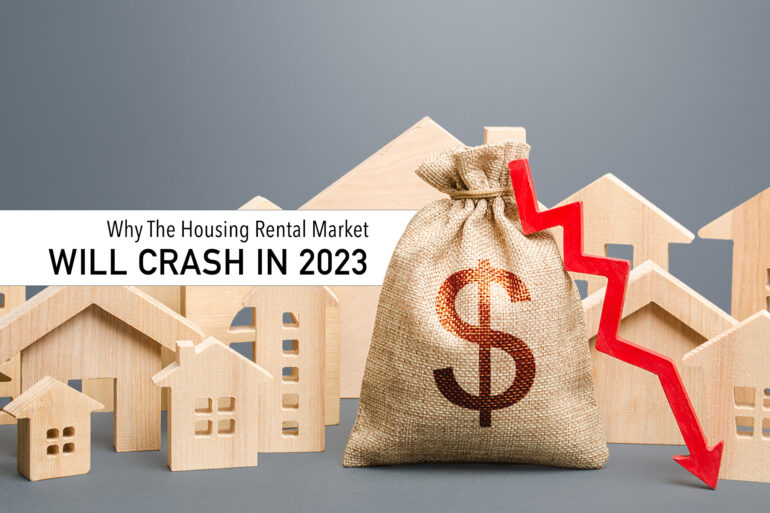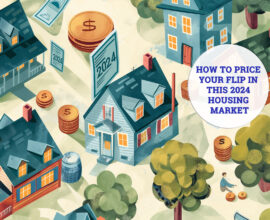Why The Rental Market Will Crash In 2023
The rental housing market in Florida is currently amongst the most hyped and overvalued market in the country and had the fastest rising prices according to a new report of rental trends.
The study released on June 6th, 2022, used data from April, showing that ten of the fourteen most overvalued rental markets are in Florida, and all ten are overvalued by more than 13%.
Miami was found to have the largest “premium paid by renters, which found it was overvalued by 22.07%. The average monthly rent in South Florida rose to $2,846, even though historical leasing figures indicate the average should only be $2,331. The largest year over year increase was found to be in the Fort Myers area where average rent is up by $32.38% from 2021.”
This can be blamed on the heavy influx of people moving into Florida from states where housing prices are higher than Florida along with a shortage of housing inventory. Supply chain issues and rising material costs have hampered building companies from adding to the supply of homes.
Rent growth is predicted to outpace home sales growth in 2022, but moving into 2023, renting may become a less affordable option in some states.
Ken Johnson, a real estate economist at the Florida Atlantic University College of Business, states, “until more rental units are built, landlords will continue to raise rates, pricing out many middle-class consumers who previously turned to renting because they couldn’t afford to buy.” Johnson also said, “during 2020, in fact, rentals in most of the county were undervalued because they were leasing below the long-term trend, but the expiration of the moratorium combined with strong demand for rentals, particularly in Florida, sent rental rates soaring.”
Using my crystal ball, can we predict a rental market crash in 2023, seeing that rental rates have become so overinflated? Rent growth is predicted to outpace home sales growth in 2022, but moving into 2023, renting may become a less affordable option in some states. It also seems that larger rental units have gained the most momentum as people now share. For example, they may have three generations of families living in the same rental units, including aunts, uncles, nieces, and nephews to help absorb the high rental costs; sharing is caring! Many college students take on additional roommates. Owners with two plus extra bedrooms may want to share with other people to help with their higher mortgage payments and the greatest use of manufactured homes as rentals and charging a reduced rental fee for this to make it more affordable and attractive for potential renters.
The apartmentlist.com September 2022 National Rent Report shows that the national index indeed rose by 0.5% over the course of August, which is half the rate of growth compared to last month. This trend marks the declaration of the rental market that follows a typical pre-pandemic trend. This year’s rents rose faster than re-pandemic but are significantly slower than those in 2021 when rent inflation was at its peak. In 2022, rents are up 7.2 percent, compared to 14.8 percent at this point in 2021. Year-over-year growth has slowed to 10 percent, down from a high point.
On the supply side, a slowing down in rent growth was matched with a slight uptick in apartment vacancies. Today’s vacancy rate remains below the pre-pandemic norm. This could be attributable to spiking mortgage rates that are continuing to sideline first-time homebuyers, keeping more people renting for longer. Because the national median rent increased by a record setting 17.6 percent over the course of 2021, this rapid rent growth increase is a key contributor to overall inflation. This makes the index particularly relevant as it can signal what is likely ahead for 2023. The index shows that rent growth has cooled in 2022 since last summer’s peaks.
The index shows how some of the markets, which had been booming the fastest, are now showing signs of cooling off. The Phoenix metro has experienced the slowest rent growth over the past six months with an increase of only 2%; it was ranked in the top ten fastest growth since March 2020. Las Vegas, Jacksonville, and Riverside metros, which were also amongst the fastest growing rental markets, have also been amongst the slowest growing in the first half of the year.
After experiencing disruption over the past two years, the rental market is gradually stabilizing, but demand has started to level off in some of the nation’s hottest markets. In downtown West Palm Beach, realtor Daragh McCaffery of Distinctive Realty Group, said that there are more rental apartments and condos on the market with some units sitting empty. He’s even started reducing prices on one-bedroom units: “Three months ago, there were no one-bedrooms downtown. Now, there’s a surplus. It’s like someone turned off a tap. It literally stopped. It’s weird.”
Think of 2023 like this: a combination of strong demand, low supply, and high inflation have kept rental prices on a high. Costargroup.com cites that for the first time in twenty months, rental prices are seeing negative growth, which points toward a “deteriorating rental market.” This is a welcome relief for Americans who have seen their rents rise while dealing with inflation. CoStar projects that rent growth will continue to slow in the coming months, ending the year only 6.2% higher than in 2021. Although Costar projects rents to rise by 4.9% in 2023, I think many factors could exacerbate a rental crash market in 2023 due to landlords having to be mindful of a high inflation rate, rising gas and food prices, and the possibility of increased unemployment, which will place a burden on renters to come up with the extra bucks for rent.
Because the national median rent increased by a record setting 17.6 percent over the course of 2021, this rapid rent growth increase is a key contributor to overall inflation.
The supply of rental apartments will grow, which will in turn give a prospective tenant increased negotiating leverage with a landlord on a more beneficial rental rate. On the supply side, a slowing down in rent growth was matched with a slight uptick in apartment vacancies. Today’s vacancy rate remains below the pre-pandemic norm. This could be attributable to spiking mortgage rates that are continuing to sideline first-time homebuyers, keeping more people renting for longer. Because the national median rent increased by a record setting 17.6 percent over the course of 2021, this rapid rent growth increase is a key contributor to overall inflation. This makes the index particularly relevant as it can signal what is likely ahead for 2023. The index shows that rent growth has cooled in 2022 since last summer’s peaks.
Many millennials are not seeing home owning as a priority, and they may not see it as an increasing asset, especially if rising interest rates keep them out of the market.
Although the rental market may not “crash” in 2023, with interest rates gaining momentum and with the rate of inflation rising, many potential homeowners may put the brakes on buying a property until things start to slow down again. Many millennials are not seeing home owning as a priority, and they may not see it as an increasing asset, especially if rising interest rates keep them out of the market. As investors that are making a strategic plan for 2023, keep in mind all of these factors to determine whether you are going to flip or hold. You may decide to hold your investments so that you can earn passive income from several rental properties, especially if you are in a “hot” metro area, but check first that there are no rent control statutes in your area, especially if you are investing in an apartment building. You must do your due diligence! We all know too well that a global pandemic can creep up on us at any time, which can change your investing dynamic overnight, even my crystal ball can’t predict pandemic or major catastrophes, but we all remember the adage: “the past is a predictor of the future.” Happy Investing!








